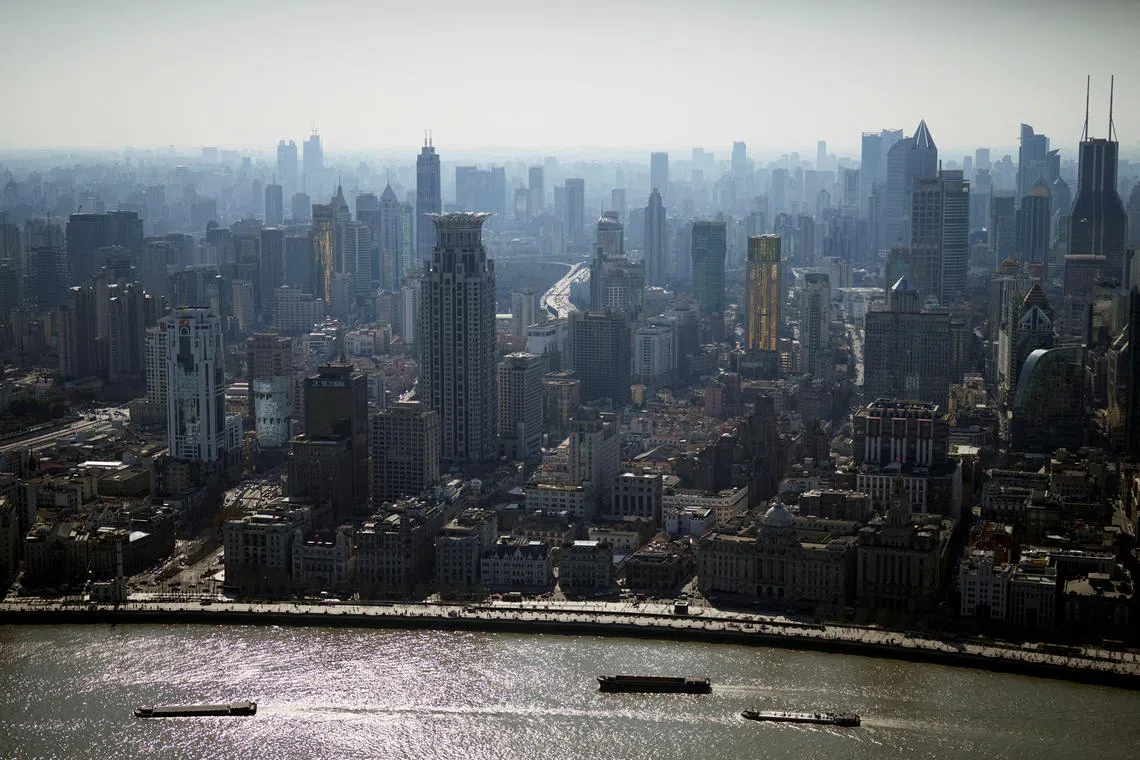In China, rare dissent over a programme to save on drug costs
Sign up now: Get insights on Asia's fast-moving developments

The outburst of scrutiny was a rebuke of Beijing’s campaign to lower medical costs.
PHOTO: REUTERS
HONG KONG – A rare display of public anger is unfolding in China over the quality of domestically produced drugs.
A prominent Shanghai surgeon pointed to anaesthetics that do not put patients to sleep. A respected Beijing cardiologist questioned blood pressure medication that failed to regulate. A former editor at a leading online health platform went as far as to accuse domestic drugmakers of fraud.
The concerns became public discussions this past week when some top doctors and hospital leaders called on the government to change how it buys drugs for its public hospitals.
The outburst of scrutiny, unusual in a country where the authorities keep a tight grip on public criticism of the government, was a rebuke of Beijing’s campaign to lower medical costs. Officials are working to shore up China’s national healthcare system, which is under financial pressure in part because of a rapidly ageing population.
The policy, which was put in place in 2018, encourages fierce competition between drug manufacturers and has been successful at sharply driving down drug prices. But in 2025, foreign-branded drugs have been largely absent from the government list of medicines covered under China’s national health insurance and offered at public hospitals.
The change has effectively pushed out many foreign pharmaceutical companies that do not want to compete against Chinese companies willing to sell their drugs at rock-bottom prices.
Now, doctors are sounding the alarm about the efficacy of some of the domestic drugs. The doctors are seeking changes to give patients the choice to pay more for alternatives.
“There have always been grumblings that if you cut the price, manufacturers will cut corners,” said Ms Helen Chen, a managing partner and healthcare expert at L.E.K. Consulting in Shanghai.
“Now there are some public voices saying it is happening,” she added.
After years of failing to reduce costs, the government created a central bidding system that favoured cheaper medicines, which in most cases have been generics made by Chinese companies. In exchange, the government guaranteed to purchase more from each supplier.
Public hospitals account for about 70 per cent of China’s drug market. Patients who use private clinics have easier access to a wider choice of medication, including foreign brands.
The annual bidding system, known as volume-based procurement, has more than halved the price of most drugs and saved Beijing over US$50 billion (S$67.3 billion) in its first five years, according to the most recent available government data.
“The national procurement system does keep prices down,” Professor Zheng Minhua, director of surgery at the prestigious Ruijin Hospital in Shanghai, said in a video interview with a local state media outlet.
But “at such a low price, the quality of the drug may be unreliable”, he added, citing several examples including antibiotics that have caused allergies, blood pressure medication that did not lower blood pressure, and laxatives that failed to do their job.
Prof Zheng was among more than 20 doctors and Communist Party members who submitted a proposal to the government that would allow patients to get an original brand-name drug even if it was not on the approved procurement list. Insurance reimbursement would be adjusted depending on whether the drug was an original brand-name one or a generic.
Dr Lu Changlin, head of cardiology at Beijing Chaoyang Hospital, submitted a similar proposal suggesting that doctors and patients should not be forced to use the drugs on the procurement list.
The growing pushback from the medical community has been so strong that China’s National Healthcare Security Administration, which is responsible for national medical insurance, dispatched officials to Shanghai to speak to doctors and examine clinical data for the drugs.
“There is no regulation banning the purchasing or use of imported and branded drugs,” it said in a statement this week.
After the public outcry, some medical professionals have begun to examine the trials for some generic drugs.
In a post on social media, Dr Xia Zhimin, a doctor at Hangzhou Hospital of Traditional Chinese Medicine, compared data from the trials of original drugs with those of the same drugs in generic form and found too many similarities, raising questions about whether the data was fraudulent.
“The numbers are exactly the same, down even to two decimal places,” wrote Dr Xia, former deputy editor-in-chief of Ding Xiang Doctor, a popular online forum for medical professionals.
“It’s Chinese generic drugs that have bad quality,” he said.
In a statement on Jan 24, a unit of China’s National Medical Products Administration acknowledged the duplicated data, saying it was the result of “editing errors when the relevant product information was disclosed”.
The issue has hit a raw nerve at a time when many people are feeling a sense of insecurity from China’s real estate downturn and sputtering consumer economy.
“If this isn’t a bottom line, I don’t know what is,” wrote Mr Meng Chang, a journalist and host of a popular podcast, in a social media post that was later taken down.
“The vast majority of good doctors are in the public system,” Mr Meng wrote. “But now, when you want to have imported drugs and surgery equipment, you have to go to the private sector.” NYTIMES


